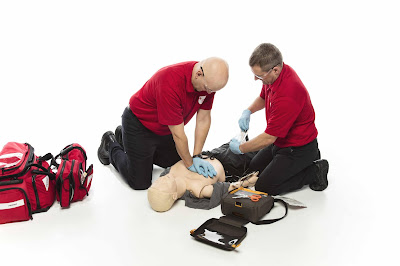What You Should Know About Heart Attacks And Other Chest Pains?
If you are reading this, there is a chance you may have been given a diagnosis of heart attack. This is not something that happens to everyone, but it can happen to anyone. In this situation . If you are certified with a remote first aid course then it can save someone's life.
A heart attack can be scary and can happen without warning (this is known as an "acute" heart attack). But many people do experience warning signs before their heart attacks.
What are the symptoms of a heart attack?
The most common symptom of a heart attack is chest pain or discomfort. The pain can range from mild to severe and may feel like pressure, tightness, fullness, burning or squeezing. If you have been to a remote first aid course then perform basic first aid activities before the doctor arrives.
The pain may be constant or it may come and go. It also can feel like discomfort spreading beyond your chest to your arms, neck, jaw or shoulders.
Other symptoms include shortness of breath with or without chest pressure or discomfort; nausea; sweating; lightheadedness; fainting (more common in women); and sudden weakness in one part of the body (usually arms).
What should you do if someone is having a heart attack?
- Call the emergency number. Do this even if the person has already called for help, or if you aren't sure whether they have actually been having a heart attack. It's better to be safe than sorry!
- Ask them questions: Has anyone in your family had a heart attack? Have you ever taken nitroglycerin (or something similar)? Are you feeling shortness of breath? Is there pain in your chest or arm?
- If possible, use remote first aid courses to learn how to check for signs of a potential stroke.
Ask the person if they are having any pain or numbness in their face, arm or leg. If possible, check for signs of a stroke: Ask them to smile. Ask them to stick out their tongue and move it from side to side.
Why do heart attack symptoms vary in people?
- There are many possible reasons for this discrepancy, but the most obvious one is that not everyone experiences the same level of pain. Some people may have a heart attack and be barely aware of it.
- Others may have a heart attack and feel severe chest pain that lasts for more than five minutes.
- Another reason why symptoms vary is because they can come on quickly, or slowly over time. In some cases, you may not even realise you've had a heart attack until hours later when chest pain returns with full force and gets worse as time passes.
- Finally, some people will experience different types of symptoms depending on their specific condition or underlying health issues such as diabetes or high blood pressure (hypertension).
There is no one-size-fits-all way to treat heart attacks. The key is to know what symptoms to look out for and how to handle them. If you have any concerns about your health or that of someone you know, please seek immediate medical attention at an emergency room or call the emergency number.




Comments
Post a Comment